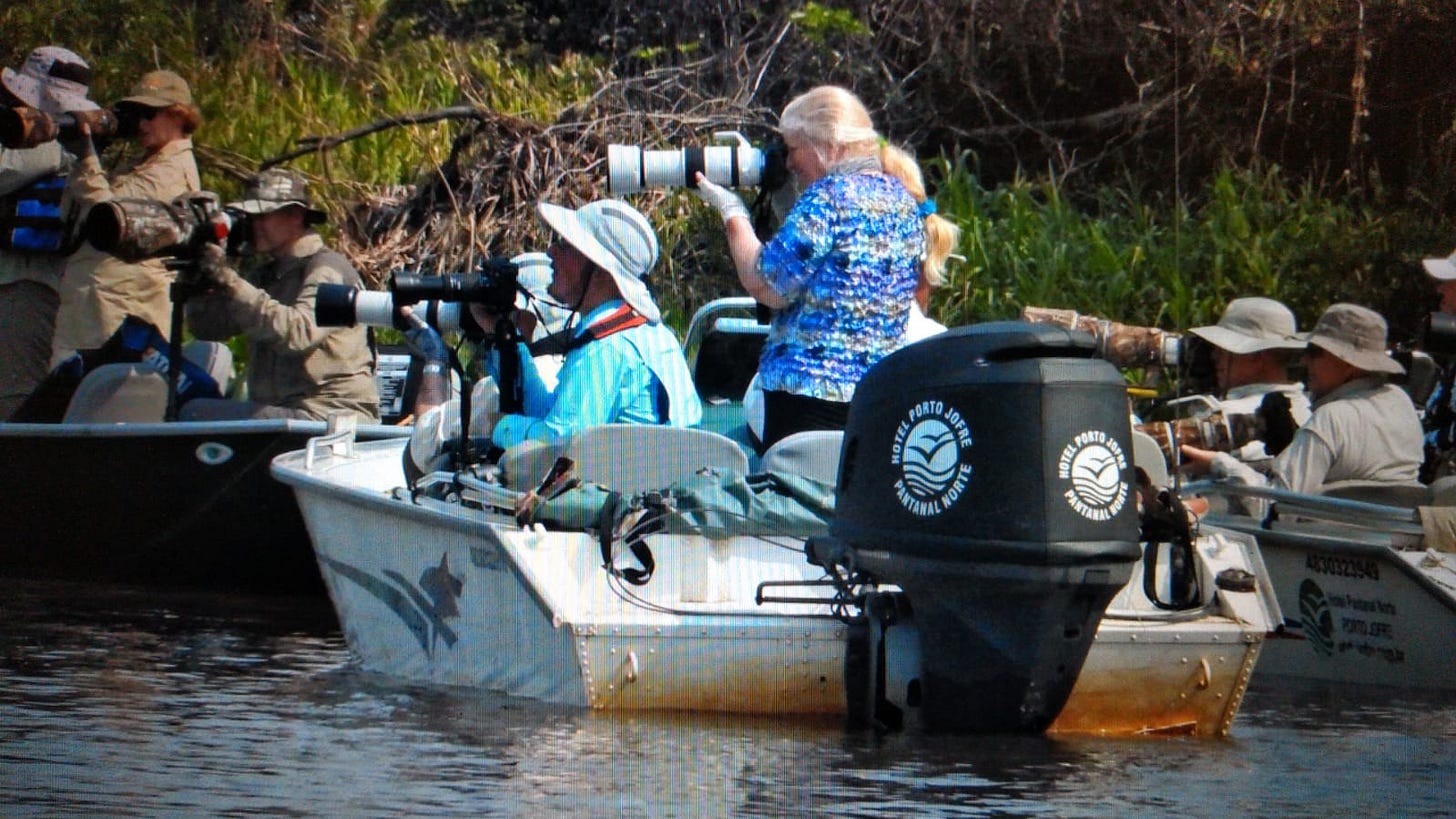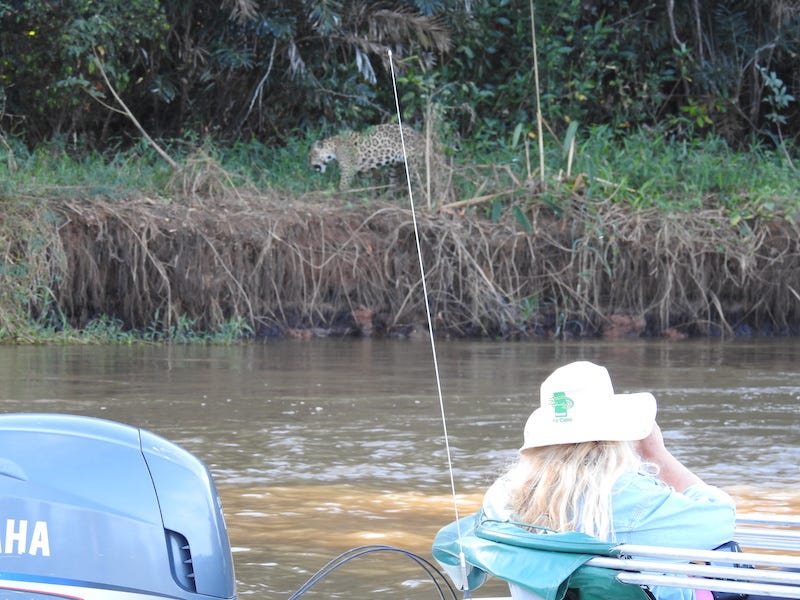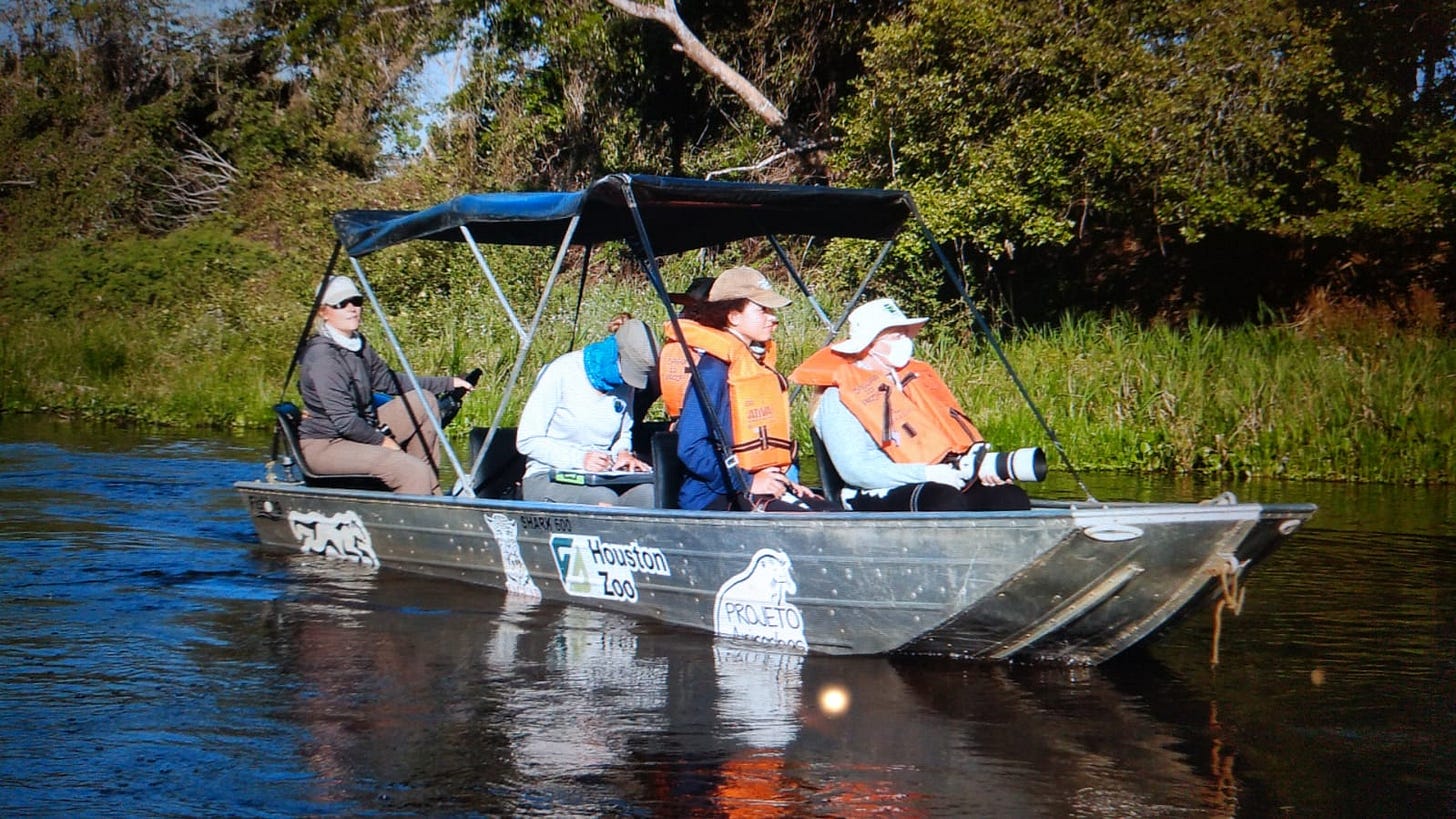"Saving Jaguars and Ourselves" Film Sizzle Reel
Sizzle Reel and Website with Action Items
Hi Everyone,
I want to apologize for not posting in quite a while. I have been writing grants to try to support the feature version of my short climate-change documentary film, “Saving Jaguars and Ourselves,” which takes place in the beautiful Pantanal Wetland, about 500 miles south of the Amazon Rainforest, in Brazil. Grants are extremely competitive so they are very hard to get because so many people apply for them—but I have still been trying. The Pantanal and the Amazon Rainforest are both endangered.
You can see a 5-minute sizzle reel about the film on the film’s website, www.savingjaguarsandourselves.com The website has a Take Action page with numerous Actions on it that we can take to help protect these precious irreplaceable areas that are critical to protecting us from climate change! You can learn more about the story of the film on the website—but in 2020 and 2021, ordinary people had to fight severe climate change fires with little or no equipment, training, or gear. The film also has beautiful wildlife and river scenes.
I traveled to the Pantanal for the first time in 2018 on a nature photography tour to photograph and film jaguars and other wildlife and I fell in love with it there. I returned last summer in 2022 to film a documentary about the fires and the importance of protecting the Pantanal and the Amazon Rainforest in collaboration with Abbie Martin, a zoologist who has been studying jaguars in the Pantanal for 4 months per year—for the past 10 years. In 2020 and 2021, I watched in horror as Abbie posted images and videos of the fires in the Pantanal—especially in 2020, fires were out of control for months and the government under Bolsonaro was very slow to respond. The courage and sheer determination of ranch hands, tour guides, biologist and zoologist researchers like Abbie, and other residents helped protect jaguars and saved the Panthera nonprofit conservation ranch and the town behind it from fires. They are heroes and their story is an inspiration and provides opportunities for us to learn how our actions and fossil fuels here in the U.S. are affecting people across continents—and what we can do to protect both them and ourselves! So saving jaguars really IS saving ourselves! The Pantanal Wetland is warming from climate change faster than almost any other area of the world!
If you are interested in supporting the feature version of this film, I would be grateful if you would consider donating even $3 on the website.
The short documentary version of “Saving Jaguars and Ourselves” will be shown in 2 theaters in November at the Ft. Lauderdale International Film Festival and again at the Central Florida Film Festival in Mt. Dora in January 2024.
I thought you might enjoy seeing some photos—Here I am filming a jaguar in the Pantanal Wetland in Brazil last summer 2022. I spent 2 days on the river on a tour boat with Joseph Van Os Photo Safaris to get more wildlife footage, but most of the time I was out on the river with Abbie as she studied jaguars. The Pantanal is the world’s largest wetland, a UNESCO World Heritage site and a Ramsar Convention Wetland.
In the fires of 2020, 750 jaguars were injured, killed, or displaced, and 17 million vertebrate animals died in the fires. The area where I was in Porto Jofre and its wildlife had largely rebounded by last summer, but for 2 years (in 2020 and 2021), the endangered giant otters there did not have baby pups. In 2022, it was thought that otters might have babies for the first time, but I did not see any last summer—and the otters I did see and film had ribs that are visible through their skin on their bodies—whereas when I was first there filming in 2018, the otters appeared more well-fed and I did not see any outlines of ribs. Otters eat massive amounts of fish every day and it is very likely that combinations of climate change and other conditions are affecting their food sources.
The Pantanal and the Amazon Rainforest are crucial in protecting the entire Earth from climate change—especially the Amazon Rainforest, which directly affects rain and climate in the Pantanal, and in the United States all the way to the border of Canada, and basically the entire world. The decimation of the Amazon is a factor in the increased heat we are all experiencing right now this August—with the world’s hottest days—2 of them—occurring this summer!
I hope you will take a few minutes to look at the Take Action page on the website because there are a lot of great ideas of ways to take Action with direct links that make them pretty easy and quick to do!
Here I am filming a jaguar on the bank in 2018:
(All of the photos of me are courtesy of Paulo Boute, Joseph Van Os Photo Safaris.)
In this last photo from last summer, I am in the green jacket sitting in the front of Abbie’s boat. Abbie is driving the boat in the back. I look goofy wearing a mask out on the river—but I got a little sunburned and the suntan lotion kept getting in my eyes and burning them all day long—so I wore a mask that day to protect my sunburn. I share this image because I wanted you to see Abbie and her boat. Her assistant, Yvonne Kemp is sitting in front of Abbie with her head down recording information about the last jaguar we saw. Most of the days I was there, I was out on the river with Abbie filming. We had two other guests with us on this particular day.
(Photo courtesy of Paulo Boute, Tour Guide, Boute Expeditions)




